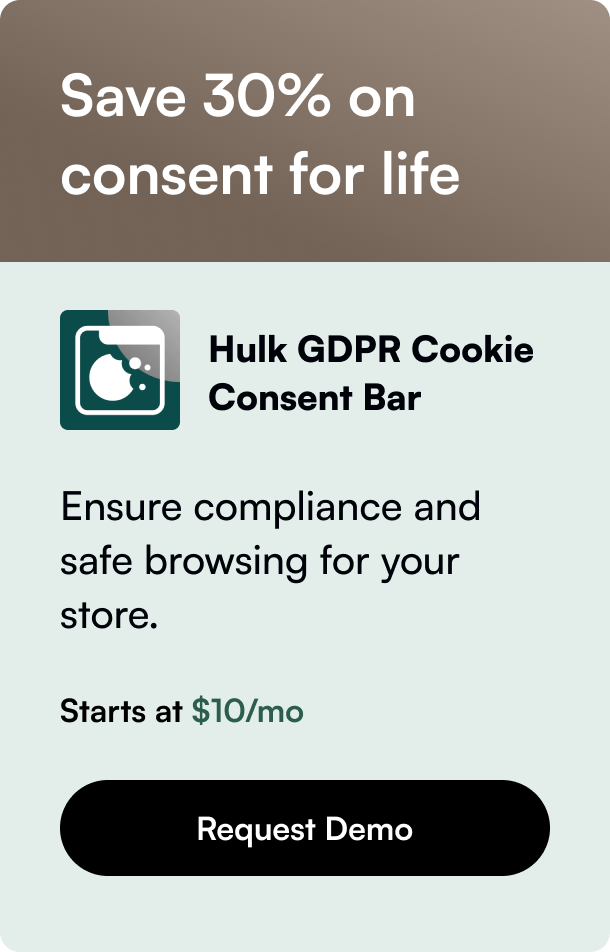Table of Contents
- Introduction
- Keyword Basics: The Foundation
- Integrating Keywords into Your Shopify Website
- Beyond the Basics: Advanced Keyword Strategies
- Frequently Asked Questions (FAQ)
- Conclusion
In the bustling online marketplace, standing out is more critical than ever, especially for Shopify store owners. Enter the power of keywords - your digital beacons that guide potential customers right to your doorstep. Today, we’re diving into the world of SEO (Search Engine Optimization) and how you can master the art of adding keywords to your Shopify website, setting you on the path to increased visibility and sales.
Introduction
Imagine owning a treasure that everyone desires but no one can find. That's exactly what running an online store without the right keywords feels like. Keywords are the map that leads search engines and, consequently, your customers to your products. But how do you integrate these into your Shopify website effectively? This blog post is your treasure map to understanding the power of keywords, where to place them, and how they transform your store's online presence.
By the end of this guide, you'll have a clear strategy for conducting keyword research, incorporating these keywords into various parts of your Shopify site, and ultimately boosting your store's findability on search engines. Let’s unlock the secrets to adding keywords to your Shopify website and why it’s a game-changer for your business.
Keyword Basics: The Foundation
Before diving into the practical steps, let’s understand what keywords are. At their core, keywords are phrases that potential customers type into search engines when looking for products or information. They can range from a single word to complex phrases and are essential for SEO. Choosing the right keywords means aligning your content with what your target audience is searching for.
The Importance of Keyword Research
Keyword research is pivotal. It’s about understanding your audience's language and the terms they use when searching for your products. Tools like Google Keyword Planner, Ahrefs, and SEMrush can help you uncover these golden nuggets. Look for keywords with high search volume but lower competition to strike the perfect balance between visibility and achievability.
Integrating Keywords into Your Shopify Website
With a list of targeted keywords at hand, it's time to weave them into your Shopify store. Here are the key areas to focus on:
1. Titles and Meta Descriptions
Your page titles and meta descriptions are your first SEO offense. They're what show up in search results, enticing users to click through to your site. Make sure your primary keyword for each page features prominently in both. Shopify makes editing these elements straightforward through the ‘Online Store’ settings.
2. Product Descriptions
Your product descriptions are not just for informing potential buyers about your products; they're a prime spot for keyword insertion. Use natural, engaging language that includes your chosen keywords. This helps search engines understand and rank your product pages.
3. Image Alt Texts
Search engines can't "see" images, but they can read alt texts – the written copy that appears in place of an image if the image fails to load. Adding descriptive alt texts that include your keywords can boost your store's visibility and accessibility.
4. Blog Posts
Regularly updated content, like blog posts, can significantly enhance your keyword strategy. Cover topics related to your products and industry, sprinkling in your keywords throughout the content. This not only helps with SEO but establishes your brand as an industry authority.
5. URLs
Simplify and structure your URLs to include keywords. Clean URLs are more easily processed by search engines and can improve your site's ranking.
Beyond the Basics: Advanced Keyword Strategies
While adding keywords to your Shopify website is foundational, advanced strategies can further enhance your SEO efforts:
-
Long-Tail Keywords: These are longer, more specific keyword phrases. They're invaluable for attracting highly-targeted traffic and can significantly increase conversion rates.
-
LSI Keywords: Latent Semantic Indexing (LSI) keywords are conceptually related terms that search engines use to understand content depth. Incorporating these into your content can boost relevancy and SEO.
-
Regular Updates: SEO isn’t a one-time deal. Regularly reviewing and updating your keywords according to current trends and analytics can keep your store competitive and visible.
Frequently Asked Questions (FAQ)
Why should I use long-tail keywords in my Shopify store?
Long-tail keywords are specific and often indicate a higher intent to purchase. They can drive more qualified traffic to your store, leading to higher conversion rates compared to more generic keywords.
Can I over-optimize my Shopify store with too many keywords?
Yes, keyword stuffing, or overusing keywords, can negatively impact your SEO efforts. It’s crucial to use keywords naturally within your content to avoid being penalized by search engines.
How often should I update my keyword strategy?
Regularly. Market trends, search algorithms, and consumer behavior constantly evolve. Reviewing your keyword strategy every 3-6 months ensures that your content remains relevant and competitive.
Do I need to optimize my Shopify store for voice search?
With the rise of virtual assistants, optimizing for voice search is becoming increasingly important. Incorporating conversational long-tail keywords into your content can improve visibility for voice search queries.
How do I measure the success of my keyword strategy?
Use analytics tools like Google Analytics to track your website’s performance. Key metrics include organic search traffic, keyword rankings, and conversion rates from organic traffic.
Conclusion
Adding keywords to your Shopify website is a critical step toward unlocking the potential of your online store. By strategically integrating targeted keywords, you enhance your site’s visibility, drive more relevant traffic, and increase the likelihood of conversions. Remember, SEO is a marathon, not a sprint. Regularly updating your keyword strategy and aligning it with current best practices ensures long-term success in the competitive e-commerce landscape.
Embark on this SEO journey with patience and persistence, and watch your Shopify store soar to new heights.








